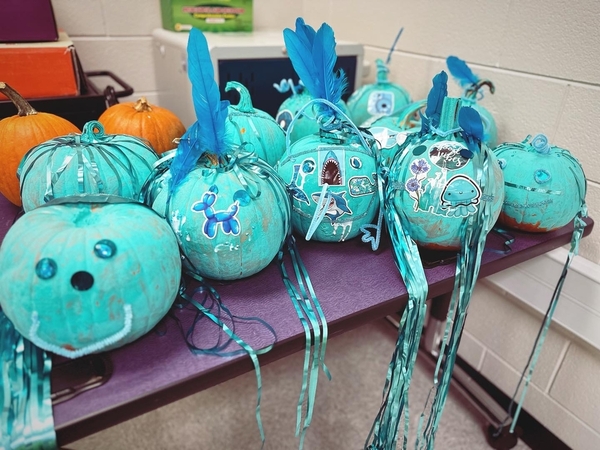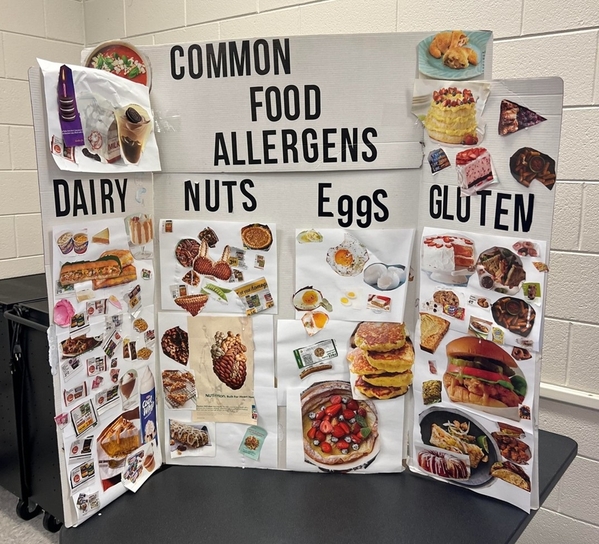"All it takes is a motivated and passionate person to make a difference" - Dana Johnston
What Is the Allergy Breakfast Club?
The Allergy Breakfast Club (ABC) was started by Dana Johnston, a parent who saw a need for more awareness of food allergies and food-related diseases in schools. Dana’s daughter, Briley, was diagnosed with celiac disease at 5 years old.
Briley had frequent stomach aches and would toss and turn during the night, unable to sleep from the discomfort. Dana recalls food wasn’t even on the radar as a possible cause. It took several tests and weeks of uncertainty to find their diagnosis. While a diagnosis provided answers, it was a learning curve and an adjustment for the whole family. The diagnosis opened a whole new world where there was a lot to learn.
“One day my eldest [child] came home from school and says, ‘Mom, guess what? A girl in my class has celiac disease too,’ Dana said. “I remember being surprised. I started hearing all these stories of other kids with food allergies [and food-related conditions] and thought, “How did I not know about this before?”
Dana realized there were other parents and kids who probably felt the same way. Food-related diseases can feel isolating. It’s important to have spaces where you can be reminded that you’re not alone in this journey.
What Is a Food Allergy?
A food allergy occurs when the body’s immune system sees a certain food as harmful and reacts by causing symptoms. This is an allergic reaction. Foods that cause allergic reactions are allergens. A common type of food allergy, called an immunoglobulin-E-mediated (IgE-mediated), may cause anaphylaxis, a serious allergic reaction.
What Is Celiac Disease?
Celiac disease is an autoimmune disease. It causes an immune reaction to gluten, a protein found in foods made with grains such as wheat, rye, and barley. If eaten, gluten can damage the intestine in people with celiac disease. Like people living with food allergies, people with celiac disease have to avoid eating gluten. Many people living with both conditions have shared experiences.
The ABC was started to help support families with food allergies and food-related conditions and raise awareness of their impact. Every Monday morning before classes, students can meet up to talk, play games, and snack on allergy-friendly foods together. Activities are offered to help teach the students about food allergies and celiac disease so they can manage them with confidence. Parents are also invited to join in on the conversations and continue the lessons at home.
“This is a place where students can come together and talk about the struggles and help each other grow” says Dana.
ABC started with 10 members. In 2024, they have reached 22 members. Most recently, Dana said it has been heartwarming to see siblings attend the club together and support each other.
How Does the Allergy Breakfast Club Help Educate Students?
The club has hosted guest speakers such as pediatricians and dieticians to give age-appropriate tips to the students. Popular activities include decorating teal pumpkins and allergy bingo, among others. They've also made gluten-free play dough, made allergy-friendly slime, and even decorated allergy-friendly cakes.
One important topic ABC talks about is how to be prepared for celebrations and gatherings. Many of these events revolve around food and can feel stressful. Kids are encouraged to speak up for themselves and help others understand food allergies. They learn about important questions to ask, such as, “What does this meal have in it?” or “How did you prepare it?”. They learn that asking questions is important and okay.
Food Allergies and Bullying at School
After her daughter was diagnosed, Dana began learning about celiac disease and food allergies. In her research, she came across stories of children who were bullied because of their food-related conditions. Students would make fun of other children who couldn't eat certain foods or dare them to eat them.
Food allergy bullying goes beyond emotional and mental harm. It can put a child’s life at risk. People may not understand how serious food allergies are and the consequences of bullying. Intentionally exposing someone to their food allergen is a form of bullying. Depending on the type of food allergy, food allergy and bullying can lead to anaphylaxis.
ABC aims to reduce the potential for food allergy bullying by raising awareness of food allergies, celiac disease, and their impact. Awareness can help children understand these conditions better.
The Club’s Impact on the School and Community
The ABC has been a positive function for Dana’s family, as well as for the school and community. Briley loves it and states it makes her feel she is fully supported by her family.
"We're going to do anything and everything that we can to support [Briley] and to make her journey easier and healthier and happier for her,” Dana shared.
In the past, Dana noticed kids may have felt embarrassed and isolated because of their conditions. Now, they talk about them with pride and confidence.
“Monday rolls around and they'll tell us about a birthday party that they went to on Saturday and how they went with their own snack, their own food, and they came prepared so that they didn't have to feel singled out at that birthday party,” Dana said.
In honor of National Asthma and Allergy Awareness Month and Celiac Disease Awareness Month, club students will be featured on the school’s morning news. Each day in May, they’ll share different allergy facts and statistics with the school to continue bringing awareness of food allergies and celiac disease.
Through social media, other people have learned about ABC and reached out to Dana. One person connected with Dana, and successfully started a club in her county.
“[It] was really cool to hear her getting it started at her school,” Dana recalled. “The more we can do this, the better and the more supported our children and other children are going to be.”
Starting an Allergy Breakfast Club
Dana reached out to the principal of her daughter's school and asked for a meeting to discuss starting a school club. This club would be open to all students, not just children with food-related conditions. This included siblings and friends of kids with food-related conditions allergies, as well as families who just wanted to learn more about it. With the full support of the school, the ABC started 3 years ago.
For anyone who is interested in starting a club, Dana recommends starting a list of parents who would be interested in joining. Then speak with the school principal about the club, what you’d like to do, and get their support. If possible, brainstorm ways to provide allergy-friendly snacks for the group.








Comments (0)